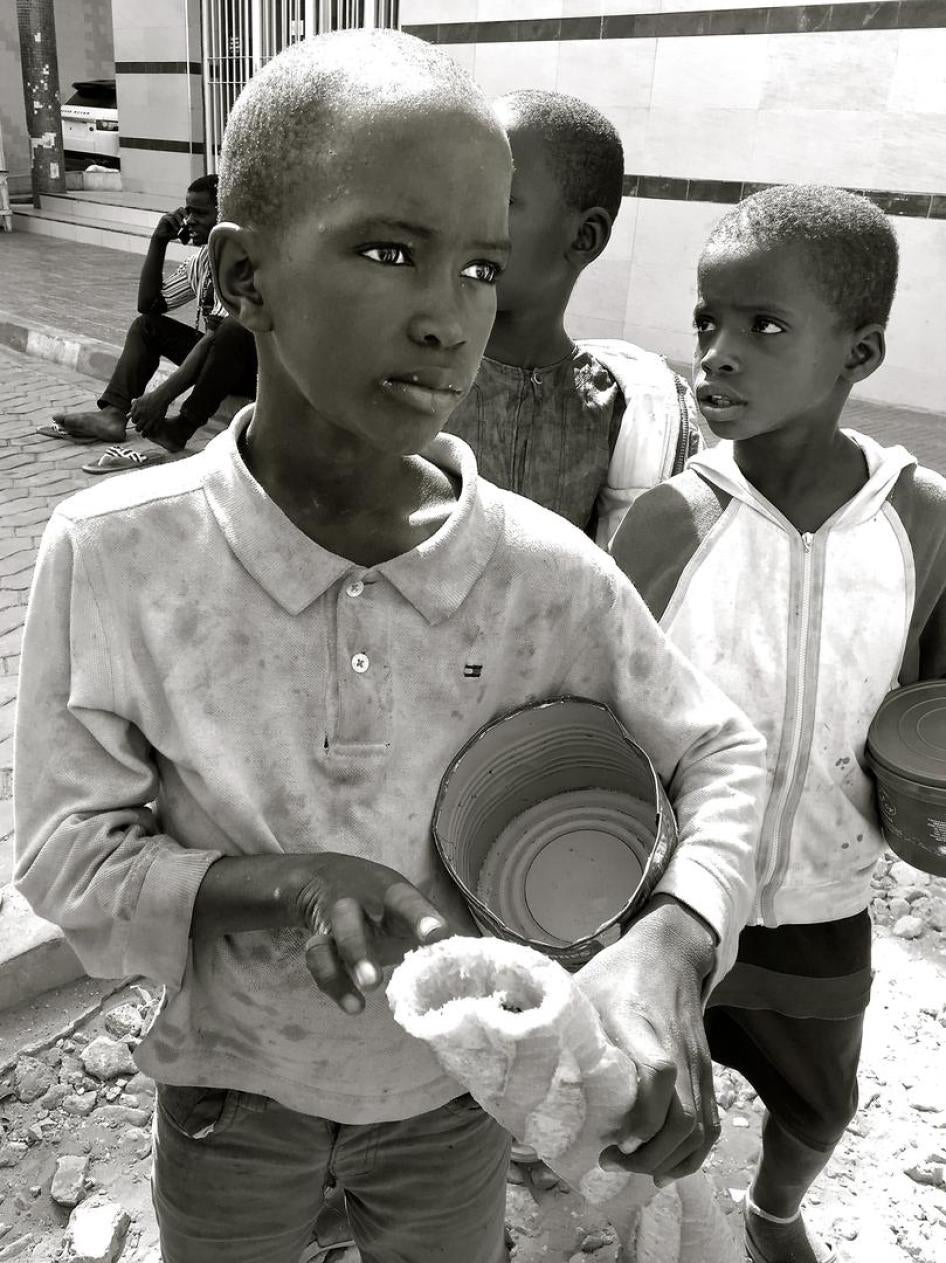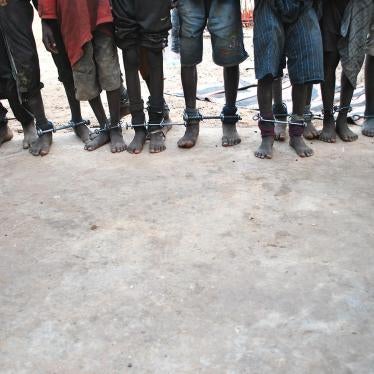Last month, the Senegalese government quietly teamed up with Interpol for a two-day anti-trafficking operation in Dakar. As part of Opération Épervier, a team of Senegalese police officers and social workers – along with the national anti-trafficking unit and Interpol – picked up over 50 children from the streets. The majority were talibés, or Quranic students, forced to beg by abusive teachers.
The team took the children to shelters for interim care and reunification with their families, as the government has done in previous similar efforts. But something new happened this time: five Quranic teachers were arrested for child trafficking and exploitation.
One of these teachers had “placed the children in different locations around the neighborhood and fixed a daily quota of money to be collected [by the children],” according to a November 6 Interpol report. “Every day he chartered a vehicle to drop them in town and monitor the activities of his victims.”
Part of a wider project to fight human trafficking in the Sahel and strengthen law enforcement capacity, Interpol’s Opération Épervier supported short-term national police operations in five countries – Senegal, Niger, Mali, Chad, and Mauritania. In total, the operation rescued nearly 500 trafficking victims, including 236 minors, and arrested 40 suspected traffickers.
Sending children to traditional Quranic boarding schools remains a strong cultural tradition across West Africa. Senegal, in particular, draws high numbers of talibés from neighboring countries to these schools, known as daaras. While many Quranic teachers – also called marabouts – respect the rights of their charges, more than 50,000 talibés in Senegal are forced to beg for money or food by less scrupulous marabouts. Failure to meet daily quotas can result in severe beatings or other abuse.
Over the past four years, I’ve visited scores of daaras and witnessed hundreds of talibés begging or living in squalor, in numerous Senegalese cities. Talibés as young as 5 beg in plain sight, often near government buildings and along busy highways, directly in front of police or gendarmes.
In 2016 and 2017, I documented 5 cases of sexual abuse by Quranic teachers; more than 30 cases in which talibés were beaten, chained, or imprisoned; and 5 cases in which talibés died as a result of abuse allegedly meted out by teachers.
Despite strong domestic laws against child abuse, trafficking and exploitation, there has been a tragic lack of will to enforce the law against marabouts who violate children’s rights – in large part due to the influence they wield in society. Senegalese officials and civil society activists have told me that police routinely fail to investigate cases of abuse, neglect and forced begging by these teachers. Public prosecutors drop investigations, and judges drop charges in spite of seemingly abundant evidence.
In 2013, nine talibé children died in a fire in Dakar after their Quranic teacher left them locked up in the daara overnight. No one was prosecuted. Last year, a marabout in the city of Diourbel was released without trial, though witnesses said and photographic evidence showed that he had shackled his talibés’ feet with iron bars.
Just last month, a 6-year-old talibé fled his daara in the northern city of Saint-Louis after being chained up. “The child ran away, and the neighbors saw him walking abnormally with his feet still chained together, so they took him to the police,” said Issa Kouyate, a children’s rights activist who runs a shelter in Saint-Louis. “The marabout was brought before the prosecutor, but there was a lot of political pressure to let him go – and he was released.”
I’ve seen scars and open wounds slashed across the backs of far too many talibés – and heard too many excuses by their teachers – to believe that anything less than justice and full enforcement of the law will ensure that these abuses stop.
“Life at the daara was difficult,” a 12-year-old former talibé told me in April. “They would hit us until we had marks and blood on our back. Sometimes we would be sick after.”
Senegal has increasingly come under pressure to address this issue, and a program opened in mid-2016 resulted in the removal of more than 1,500 children from the streets. However, as revealed in a July 2017 Human Rights Watch report, the program returned more than 1,000 talibés to the Quranic teachers who had sent them begging in the first place, and it failed to trigger a single investigation or prosecution.
In contrast, the recent initiative with Interpol demonstrates what it could look like to incorporate justice as an integral part of child protection efforts in Senegal. While the operation resulted in the arrests of only a few exploitative marabouts, this could still signal a meaningful shift in strategy on forced begging.
On November 20, the world celebrated Universal Children’s Day, 28 years after the UN adopted the Convention on the Rights of the Child, ratified by Senegal in 1990. If the Senegalese government is serious about a more holistic approach to the problem of forced child begging – one that incorporates the removal of talibés from abusive or exploitative daaras, the reunification of children with their families, and the investigation and prosecution of abusive teachers – children will finally have something to celebrate.









